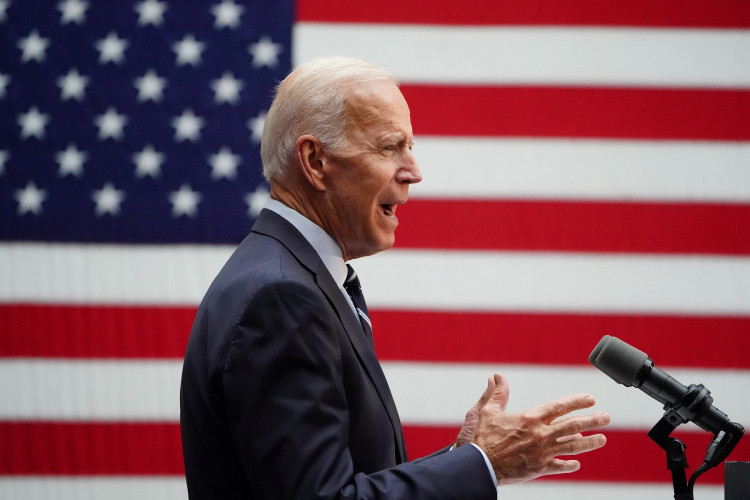A win is a win and Sen. Bernie Sanders (I-VT) won the country's first primary election in New Hampshire on Tuesday giving him nine delegates and clear frontrunner status in the race for the Democratic Party's presidential nomination. But for former vice president Joe Biden, this loss just wasn't another loss.
Sanders, the feisty and progressive liberal, was expected to win big in New Hampshire, probably as big as his 2016 primary win here over Hillary when he won 60% of the vote. But in a worrisome portent his radical democratic socialist platform might not be sitting that well among Democrats and Independents, Sanders saw a win that wasn't as huge as the one he hoped for. Not by a long shot.
Sanders took 26% of the vote against Pete Buttigieg's 25% with more than 91% of precincts reporting. Sanders, 78, is the oldest candidate while Buttigieg at 38 is the youngest.
"This victory here is the beginning of the end for Donald Trump," said Sanders to his supporters in Manchester, New Hampshire.
Sanders' base of millennials, Gen Zers, very liberal voters, men, non-black minorities and working-class whites stuck with him in both Iowa and New Hampshire. He came in second to Buttigieg in Iowa.
Sen. Amy Klobuchar (D-MN) surprised everyone by taking third with 20% and six delegates. Both Sen. Elizabeth Warren (D-MA) and Biden fared poorly, and not according to what polls predicted. Warren took 9% and Biden only 8%. Coming in below 15% meant neither of them won any delegates in New Hampshire.
Placing a poor fifth with nothing to show for it was especially galling for Biden, who was once seen as the front runner and the man to beat. He's now been beaten twice in two contests: he came in fourth in Iowa and fifth in New Hampshire.
Some political pundits say both losses will make it harder for Biden to convince Democrats in other states to stick with him. It might also make it harder for him to raise enough donations to keep his beleaguered campaign going.
Biden's hope of remaining a serious contender now depends on the next two contests: the Nevada caucus on February 20 and the South Carolina primary on February 29. Nevada has a large Latino voting population while South Carolina has a large African-American voting population. Biden's is strongest among African-Americans, who haven't let him down before.
Poll after poll has shown Biden's enduring appeal among Latinos and blacks, and pundits expect to him to either win both contests or to come in no worse than a third. Some analysts feel that if Biden doesn't win either one, the campaign is all but over for him. Biden, however, remained defiant despite the twin defeats.
"It ain't over, man," he declared after the New Hampshire loss. "It's just getting started."
He said his campaign has "just heard from the first two of the 50 states. Where I come from, that's the opening bell, not the closing bell. And the fight to end Donald Trump's presidency is just beginning."
In Iowa, Buttigieg took 26% of State Delegate Equivalents, Sanders (26%), Warren (18%), Biden (16%) and Klobuchar (12%). As for delegates, Buttigieg took 14, Sanders, 12, Warren, 8, Biden 6, and Klobuchar, 1.






